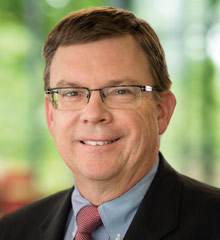Commentary on 2 Peter 3:8-15a
In this letter, the author (let’s call him Peter though we know it is not Peter of the Twelve) encourages the community into faithful living.
This text, like many of the Advent texts, invites us into a space of exploration: What does it means to wait, to live in hope, to live in faith (for isn’t living in faith always living in hope)? And asks: Does this waiting having any consequences for the community?
The waiting is obviously not defined as simply preparing for Christmas! Nor is it an anachronistic waiting (waiting for Jesus’ birth that has already taken place). These verses of 2 Peter 3 allow us to sit in God’s space and time. The community of faith is waiting for God’s judgment not in fear but with great desire. In fact, the community is constituted as a community of waiting, of yearning, in faithfulness. This hope characterizes the Christian community as witness to God’s mercy in the world.
The first verse already sets the stage for a reconfiguration of time and therefore waiting: “with the Lord one day is like a thousand years, and a thousand years are like one day.” God’s time is not our time. However, God’s time does not remain separate or disconnected from our time. A gospel time-keeping marks the community of faith. The delay of God is not the occasion for cynicism (when will God come in judgment, so ask those who mock the community and it’s hope). God’s delay is the occasion of hope, of living in the knowledge and expectation of God’s generosity, God’s mercy towards all. God’s delay is gift. The community lives in a time marked not by self-justification but by faithfulness.
The text creates several tensions for the reader/listener. There is initially the “you” and the “all” in verse 9. The boundaries a community might want to create are blurred or even quite literally broken open. Those who are already in the promise, who have heard the Gospel, are continually invited into repentance. In other words, there is not an inside and an outside to this community, there is not simply the pure and the impure, there is not a clear divide between “us” and “them.” In the community itself there is always need for repentance. But the “all” could also refer to those who have not yet heard the Gospel. In this case, the community is called into patience and into embodying God’s own desire for all to hear the Gospel.
But there is another tension in the text, one that gets heightened when this text is read in juxtaposition to the other readings for the Second Sunday in Advent. On the one hand, Peter writes about the catastrophic ending: “the heavens will pass away with a loud noise, and the elements will be dissolved with fire, and the earth and everything that is done on it will be disclosed.” On the other hand, even within the text itself this “coming of the Lord” is not something to be feared but welcomed for it brings with it a time where righteousness is at home.
We hear echoed the “Comfort! Comfort!” of Isaiah. We hear about the good shepherd who comes to feed the flock and the gather the lambs in his arms. The so-called second coming or even End Times is not something scary! It brings with it a time of comfort, of restoration, where “steadfast love and faithfulness will meet; righteousness and peace will kiss each other” (Psalm 85:10). Wrath is done away with. God comes to us in tenderness and gentleness.
How do we deal with the heavens being torn open and the earth consumed with fire? If we rely on the heavens and on the earth that we have created, then yes there is something fearful and disturbing in these end time predictions. These sayings become, so to speak, apocalyptic! But for those who have been baptized, for those who live in the promise, for those who have already died, this coming, even the turmoil of the appearance, is something gentle and sweet though probably always surprising as well. The point is that for the community living in hope, for the community marked by waiting, the second coming is not a fearful appearance, there is no need to flee from it (whether literally ignoring it or jokingly dismissing it or mockingly reconfiguring it into a projection of one’s own judgment on the world).
The community of believers in fact welcomes the unexpectedness of the arrival. In hope, the community already rejoices in the dynamic and the grace of surprise. Their waiting impacts their living. It is not an other-worldly waiting. It is not an imagined waiting. It is not a waiting that places God’s coming off in the future and keeps it unrelated from life. The waiting for the unexpected arrival changes the way the believer speaks and acts. “Since all these things are to be dissolved in this way, what sort of persons ought you to be in leading lives of holiness and godliness, waiting for and hastening the coming of the day of God…?” The waiting forms the community into a life of holiness and godliness. And it is this life, this waiting that actually hastens the return.
What could this mean? How does it hasten the return? This life of holiness and godliness, this life without spot or blemish (verse 14) is not the morally perfect life. It is rather to be defined as the joyful waiting for a new heaven and a new earth. This waiting is rooted in God’s patience, which is salvation (verse 15). And in that waiting, God unexpectedly arrives, arises, springs forth from the ground (Psalm 85), springs forth in the midst of the community. And then “all” for who God has been waiting (verse 9) sees God and come to repentance.

December 4, 2011